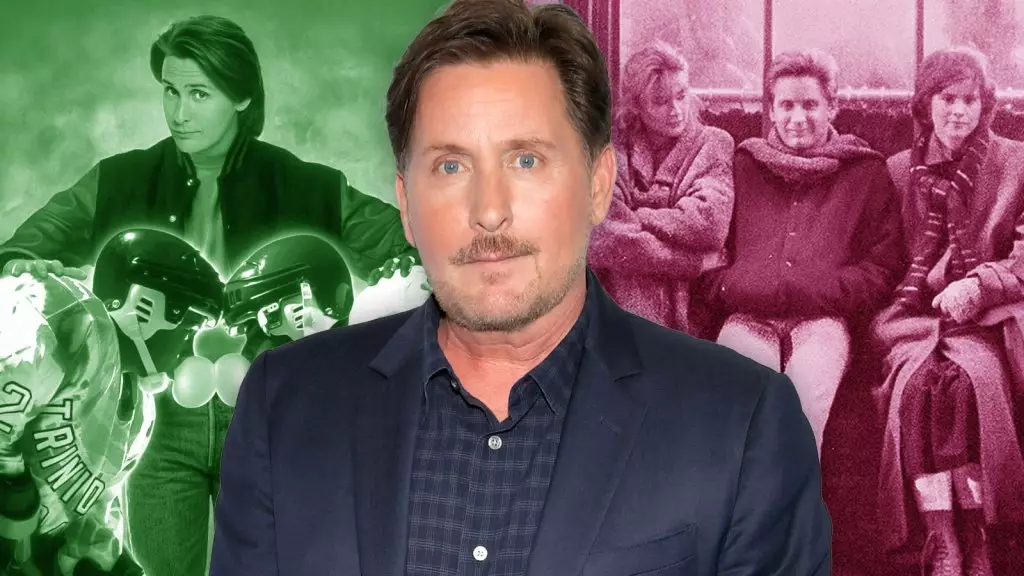In the swirling world of Hollywood, where passion often meets corporate machinations, Emilio Estevez emerges as both a nostalgic figure and a voice of reason. His recent interview not only highlighted his commitment to the “Mighty Ducks” legacy but also painted a clear picture of the ongoing struggles that creative minds face in an industry increasingly driven by profit over artistic integrity. Estevez’s passion is palpable, especially when discussing his desire to revitalize the franchise with “Mighty Ducks 4.” Yet, what stands out is his initiative to pivot towards empowerment through the lens of a female hockey league—a bold move that should be celebrated rather than dismissed.
Breaking Free from Contracts: A Battle Worth Fighting
There’s an undeniable frustration that accompanies Estevez’s experience with Disney. Although his exit from “Mighty Ducks: Game Changers” was steeped in standard industry disputes, it symbolizes a larger issue at play: the clash between passionate storytelling and corporate interests. Disney, a titan in the entertainment industry, seems incapable of seeing the potential in Estevez’s vision for an all-girls team in an expansion professional league. This nonchalance towards what could have been a pioneering narrative in sports media is astonishing, especially in an era where representation and inclusivity are paramount. One has to wonder if this pattern of dismissal reflects a wider trend of underestimating audience appetite for progressive narratives—an artistic oversight that could backfire on studios like Disney.
Lessons from the Trenches: Estevez Reflects on Directing
Aside from the exhilarating prospect of a new sequel, Estevez’s recollection of his time on the set of “St. Elmo’s Fire” provides another layer of intrigue. He candidly exposes the dichotomy between the collaborative spirit of legendary filmmaker John Hughes and the oppressive atmosphere created by Joel Schumacher. Estevez’s recounting serves as a vital reminder of the importance of fostering a supportive environment in the creative process. His vow to treat actors with respect, learned amidst turmoil, reveals a thoughtful leader who understands that creativity flourishes in spaces devoid of harassment or insecurity.
Furthermore, Estevez’s experiences offer a shrewd critique of Hollywood’s unforgiving nature—an industry that can be nurturing one moment and utterly brutal the next. This struggle is particularly resonant for those looking to make authentic contributions without succumbing to the harsh demands of power dynamics. By choosing to channel his disappointments into progressive narratives, Estevez shows that the very essence of storytelling can be a transformative force, one that advocates for the voices often left unheard.
The Road Ahead: Must Disney Embrace Change?
As we scrutinize Estevez’s revelations, it begs the question: is the industry ready for the type of bold narratives that challenge the status quo? His frustrations with Disney not only point to a broader issue of creative stifling but also challenge us as audiences to demand better. As we yearn for stories that resonate across gender lines and empower the next generation, there’s an urgent call for industry giants—especially in the realm of children’s entertainment—to embrace authenticity and innovation. Estevez’s vision for “Mighty Ducks 4” could serve as a springboard for profound societal change, reflecting new challenges and untapped stories waiting to be told. In a rapidly evolving world, it’s time for Hollywood to stop fearing risk and start embracing the powerful narratives that inspire us all.


Leave a Reply